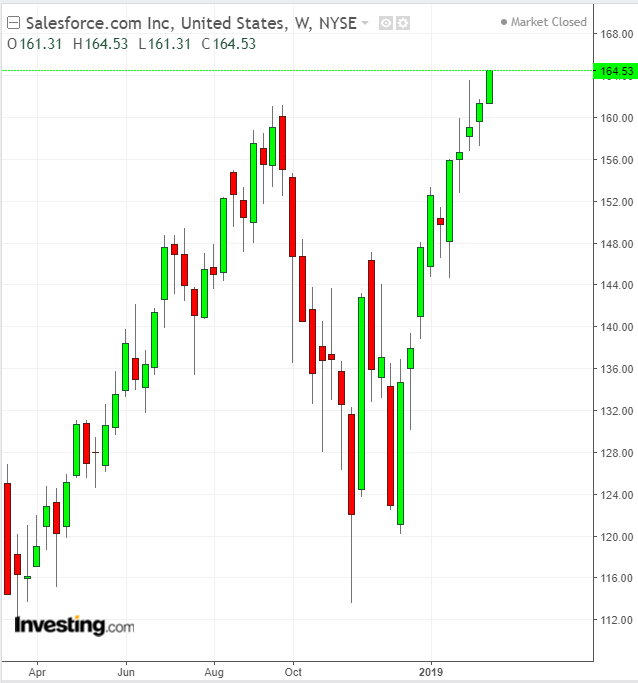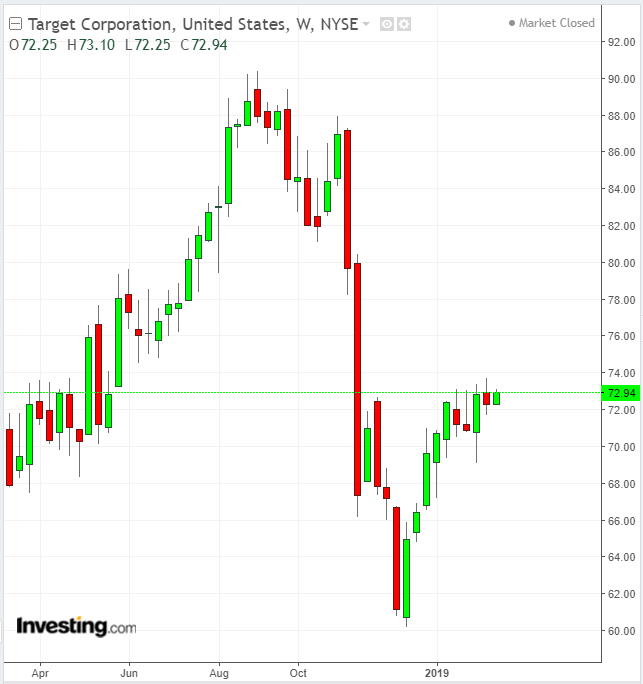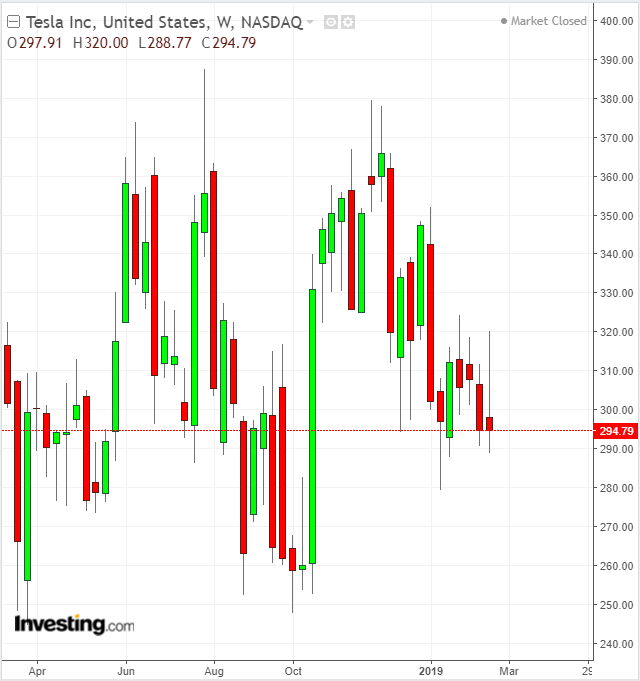Though U.S. equity markets finished 2018 under a cloud of uncertainty, thus far 2019 has been a great year for investors. All the major U.S. indices registered strong gains in February, pushing the S&P 500 to its best yearly start since 1991.
Both the Dow Jones Industrial Average and the S&P 500 are up more than 11%, while the NASDAQ has gained more than 14%, highlighting the strength of the U.S. economy, which is fueled by strong spending from both consumers and corporate entities.
Investors might see further evidence of this resilience during the coming week when some of the country's major retailers report quarterly earnings and provide future guidance. Here are three stocks that may show some unusual moves.
1. Salesforce.com
Salesforce.com (NYSE:CRM), which sells software and cloud-based services to corporate clients, will report its fourth-quarter earnings on Monday, March 4, after the market close. On average, analysts expect $0.55 a share profit, up from $0.35 a year ago. Sales are likely to jump 25% to $3.56 billion, helped by a global surge in technology spending.

Judging by Salesforce’s chart, it’s obvious that investors have already priced in an another blow-out quarter for the the San Francisco-based company, which has consistently beaten analyst estimates on earnings and sales. Trading at $164.53 per share as of Friday's close, the stock is near its record high of $165.89, hit during the past week after shares gained 22% this year; the stock has rallied 38% over the past one year.
With expectations already too high ahead of Salesforce's earnings report, and its stock, we recommend prudence. Investors should trade this stock with caution; a slight miss on earnings might trigger a big drop.
2. Target Corp.
The big-box retailer, Target (NYSE:TGT), is another important name to keep an eye on. It reports fourth-quarter earnings on Tuesday, March 5, before the market opens.
Riding on the strength of consumer spending in the last quarter, Target is expected to report $1.52 a share net profit, up from $1.37 for the same quarter a year ago. Sales are likely to show an increase of 1.2% to $23.05 billion in the quarter, according to analysts’ average estimates.

Following a strong showing this earnings season by retail peers, including Walmart (NYSE:WMT), Target is unlikely to disappoint investors, especially since its previous three quarters showed strong gains in its digital sales.
Its shares, trading at $72.94 as of Friday's close, have outperformed rivals this year, rising 10.4% in the first two months of 2019. The retailer also expects to close a very strong 2018. Indeed, Chief Executive Brian Cornell has said Target would show the “strongest” full-year, same-store sales growth since 2005.
3. Tesla
The world’s largest electric car maker, Tesla Inc. (NASDAQ:TSLA), continues to keep investors on edge, even after recently announcing the release of its lower-end, $35,000 Model 3, the cheaper vehicle CEO Elon Musk has been promising, as part of his plan to create a mass market for his vehicles.

Alongside that positive news, however, the company also said it would be closing its retail stores, shifting all of its efforts to online sales while also eliminating jobs. As well, it no longer expects to post a profit in the first quarter.
All this comes after its unpredictable CEO Musk triggered a new fight with the Securities and Exchange Commission (SEC) last week. This latest round between Musk and the government agency involves new tweets that the regulator said violated Musk's earlier agreement to not violate disclosure rules for publicly-traded companies, and could create new troubles for Musk as well as Tesla's stock.
Shares of the automaker, which closed Friday at $294.79, dropped 8% on the day and are down nearly 24% from their 52-week high of $387.46. The stock is likely to remain under pressure this coming week, especially on concerns as to how Musk and his company will generate enough cash to fulfill the CEO's grand ambitions.
Late Friday the company confirmed that it had paid a $920 million convertible bond obligation, shrinking its cash reserves of $3.69 billion, something the company reported to be in possession of at the end of 2018.
